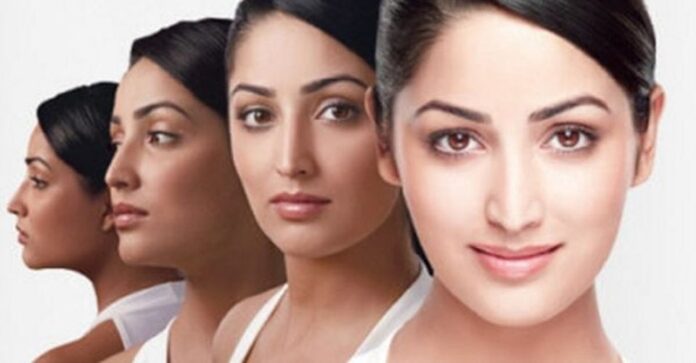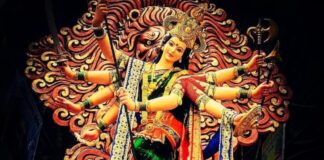In many cases reported in India, women with darker skin are pressured into paying more dowries and are ridiculed for their appearance throughout their lives. This prejudice is so deep rooted in the minds of men and women alike that a matrimony advertisement specifying the man’s requirement of a ‘fair’ girl is considered normal by the masses.
By Natasha Sudhir
India is a country that has been obsessed with fair skin for centuries now. Its roots go back a couple of centuries when Brahmins were considered the ‘light’ castes and other castes were considered ‘dark’ skinned. There has always been a notion that the labor class is dark skinned as they would toil under the sun every day and the upper classes of society were fair, symbolizing power and wealth. In Sanskrit, the term ‘Asuryasparsh’ is used to define someone who is not tanned and untouched by the rays of the sun and is therefore affluent and pure. Certain books claim that Buddha was censured by Brahmin critics because he was born with a deeper skin tone. Indian women of royal descent who wanted their skin to appear lighter, used to apply pearl extracts on their faces. India was then politically and culturally dominated by the Persians, Afghans and the Turkish people who were fairer than native Indians. Then came the British Raj, for close to a century, Indians were ruled by people who were lighter skinned than them and this heavily contributed to our country’s obsession with fair skin. The British with their fair skin tone were associated with superiority and aristocracy and thus Indians became psychologically obsessed with fairer skin.
Women born with darker skin have been subjected to harassment and ostracism since time immemorial. They have been told that nobody would marry them and have been given all sorts of homemade concoctions to apply on their face and body in order to lighten their skin tone. Women have been told that they will not be able to get jobs or ever be accepted by society given their dark skin tone. Many Indian women have killed themselves because of the endless harrying over their deep tone of skin. In many cases reported in India, women with darker skin are pressured into paying more dowry and are ridiculed for their appearance throughout their lives. This prejudice is so deep rooted in the minds of men and women alike that a matrimony advertisement specifying the man’s requirement of a ‘fair’ girl is considered normal by the masses.
This unhealthy propaganda was further fueled in the 19th century with the introduction of fairness creams in the market. In the year 1919, India was introduced to its first fairness cream, Afghan Snow which was manufactured by ES Patanwala, a perfumer who came to Mumbai from Rajasthan. The product was named after King Zahir who apparently felt that it reminded him of the snow from his native land. This was just the first fairness cream that was formally introduced in India after which many of them swarmed the markets with superficial claims of acquiring light skin in a week! A majority of creams that were introduced into the market post Afghan Snow contained bleaching agents that reduce the natural concentration of melanin in our skin by depleting melanocytes present and making the skin appear lighter. Indians are naturally endowed with higher melanin than people of the west which protects us from all kinds of dermal cancers and diseases. Indians are exposed to high concentrations of Ultraviolet rays and melanin is what keeps us safe without the need of various types of sunblock that was not available in the olden days. The melanin present in our skin is an apparent genetic adaptation. Thus, the bleaching of skin has its own side effects ranging from Mercury poisoning to Nephrotic syndrome which ultimately leads to the damage of one’s kidneys.
In the year 1975, Hindustan Unilever then called Hindustan Levers introduced a fairness cream that claimed to be unlike any other. It was soft to the touch and the name itself proclaimed that you’re only worth anything in this society if you’re fair. This product is available in India, Bangladesh, Malaysia, Indonesia, Singapore, Brunei, Thailand, Sri Lanka, Pakistan and other parts of Asia. Post liberalization a whirlwind of brands stormed the Indian market with all kinds of fairness creams for men and women alike. This posed great threat to the brand that was leading in the department of fairness creams. This particular brand was advertising its products claiming it had two ingredients that no other cream did – Saffron and Milk. However, this brand patented Niacin amide, which is a melanin suppressor, becoming the creams main active ingredient. Their advertisements over the years have been sexist to the brim and aggrandize patriarchy. They convey to the masses that not having fair skin leads to failure in life, career, marriage and almost every other aspect possible. The typical outline of their advertisements used to be a damsel in distress (solely because of the color of her skin) who then applies this cream and finally gets the man of her dreams. Once this narrative was played out, they came up with another advertisement that helps a dark skinned girl land her dream job by applying this particular cream. The brand called this their contribution to ‘women empowerment’. These ads have all been showcased to the public with a celebrity ambassador who was probably ignorant and never understood the impact of what they were conveying to their fellow Indians.These ads were on every major road, radio channel, theater and were plastered across billboards over India so that everybody could be reminded that being dark skinned is going to get you nowhere. Children and teenagers all across India have been given this cream or another one with ‘lightening agents’ in it and asked to apply it for a period of 1-2 months. This along with the repulsive advertisements by these brands not only demoralizes these children but also threatens their relationship with self-love and self-worth. These brands have made massive profits by discriminating against a huge section of society for having a deeper skin tone. They have propagated colorism for the last 40 plus years.
After years of backlash and people voicing their opinions about these fairness creams, no active change was ever made. The year 2020 however, made them take a sudden stand out of thin air. The Black Lives Matter movement resulted in large numbers of protesters taking to the streets of the United States and other parts of the world to condemn the death of George Floyd, who died due to police brutality. Americans and citizens of other countries came together to fight for basic human rights and the hashtag #BlackLivesMatter started trending. A large number of people with their privilege, ignorance and engrained racism began the hashtag #AllLivesMatter. Everybody knows all lives matter, but you stand up for the lives that are under immediate threat and demand justice for them.
This revolution was supported by ignorant celebrities who themselves have been a part of Fairness creams advertisements. Looking at the current scenario, a particular brand changed its name. From the seemingly obvious to something a little less scandalous. However, the mere changing of a name does not change what the product does. The product continues to use its lightening agent making it the same formula with a different name to avoid backlash and to make matters worse, they promoted their Men’s fairness cream with the hashtag #AllLivesMatter which makes a mockery of the powerful BLM movement and is outright disrespectful.
These fairness creams must be held accountable for influencing the minds of young and old alike in India and propagating colorism for so many years. This was a great time for them to make a change and instead they chose to protect their brand from backlash and not make any significant changes. The brand could either drop the fairness cream from its list of products or change its formula and give it a more inclusive name than the current one.












